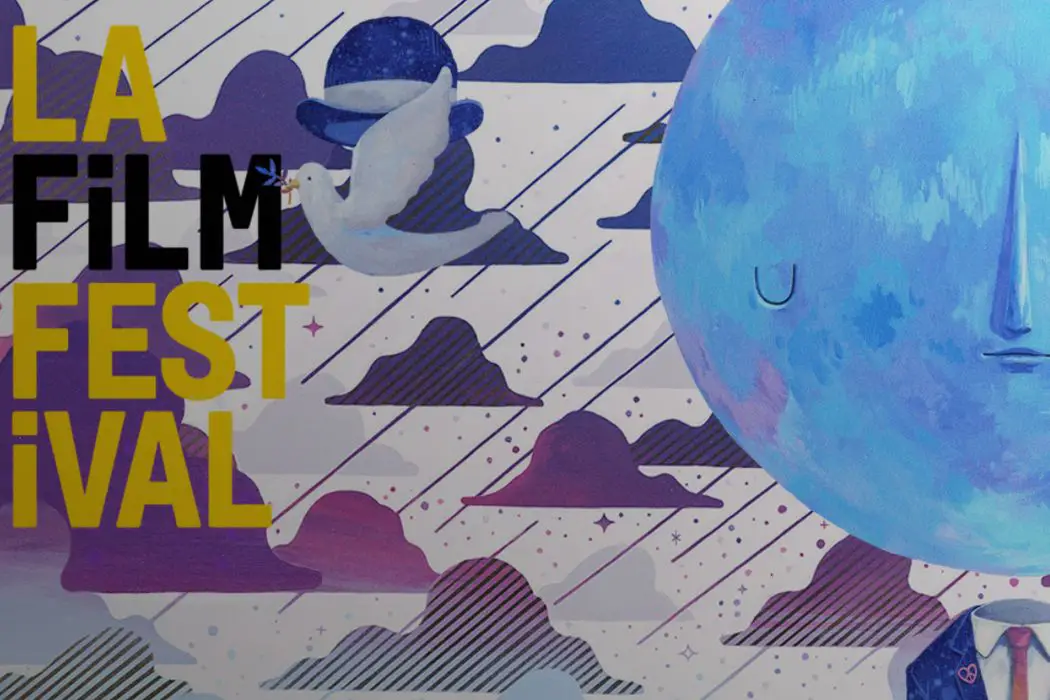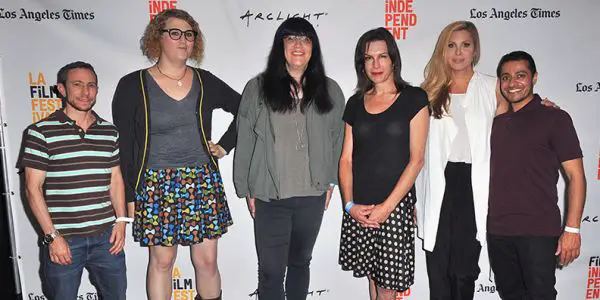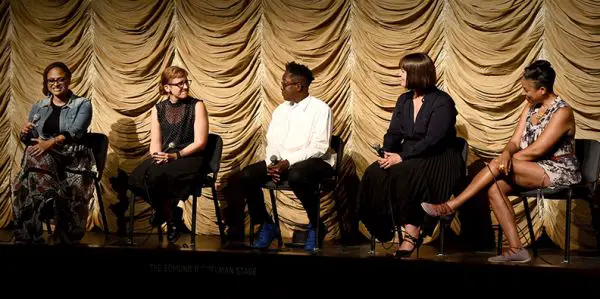Los Angeles Film Festival Report #3: Panels About Trans People, Women Globally & Queen Sugar

Manon de Reeper is the founder and CEO of Film…
Los Angeles Film Festival has ended now, but I still have some reporting left to do. I attended a few of the fest’s diversity panels, the Transgender Visibility panel and the Women Storytellers Changing The Narrative – Globally panel, on Saturday the 17th. On the 19th, I attended the terrific Ava DuVernay/Queen Sugar panel, and got to see the first episode of the new season of Queen Sugar on the big screen before it aired the day after.
Cis in Trans World: Transgender Visibility

The Transgender Visibility panel was the first I attended – it took place at the Kirk Douglas theater in Culver City. Moderator of the panel was passionate and witty Riley Silverman. Joining her were Mikki del Monico, Mari Walker, Rachel Crowl, Candis Cayne and Shaan Dasani – directors, actors and writers – all of them transgender.
They discussed how, frequently, cis male actors are cast in the roles of trangender women, and how this is harmful to the overall narrative. It’s often said in the press that their portrayal of a transgender person is “courageous” and “brave”, while when they are promoting the film, they show up as their normal selves. This suggests it’s all just play-acting and dress-up, whereas it’s nothing like that for the transgender people themselves. Rachel Crowl compared this to blackface. “[Cisgender] people dressing up as trans people is like wearing blackface,” she said. “We’re not going to ask Tom Hanks to play Martin Luther King, right?”
A common excuse is that they “need a big name” to sell the film, however, they suggested suggested that instead, filmmakers should look to cast real transgender people for a more genuine portrayal of their lives, and cast “big names” for other lead and supporting roles. Another topic that was discussed at length is that they feel that current film portraying the lives of trans people is highly focused on the two years before, during and after transitioning. They say there’s a lot more to their lives than just the transition, and they are highly capable of playing normal people, in film, too.
#SHETOLDME: Women Storytellers Changing The Narrative – Globally
This panel took place at the Arclight in Culver City and was moderated by Image Nation Abu Dhabi’s Head of Marketing and Communications and Documentary, Danielle Perissi, who was joined by Teri Schwartz, Dean of UCLA School of Theater, Film and Television; and directors Haifaa al-Mansour (my review), and Valerie Red-Horse (Mankiller); and Film Independent’s Global Media Maker Fellow Lara Saba.
This panel was a bit of a mess. While the filmmakers had many interesting things to tell, it was often dominated by either the Los Angeles Film Festival staff messing up (playing the wrong trailer for the wrong filmmaker) and staff talking through the panel, not only distracting the audience but also the speakers themselves. Moreover, UCLA Dean Teri Schwartz took this as an opportunity to do a 15-minute long sales pitch for UCLA, which seemed slightly inappropriate, since it had little to do with the female narratives this panel was supposed to be about.
Valerie Red-Horse spoke about women as leaders, in particular about the subject of her film, Wilma Mankiller, and how in Native American society it’s very normal for women to be leaders. Lara Saba and Haifaa al-Mansour spoke about representation of women in the Middle East and that there are many female filmmakers there, but that it’s hard to secure funding, which is why programs like those of Film Independent and Image Nation are important, as they help give these women a platform.
Yes, We Exist: Ava DuVernay and Directors of Queen Sugar

To say I’m a fan of Ava DuVernay is a bit of an understatement – I’ve been following her work and rise for a few years now, and really appreciate very strongly what she’s doing. I watched the first season of Queen Sugar, and loved it. That there was going to be a special sneak preview and a panel with Ava herself? Christmas came early this year!
Watching the first episode of Queen Sugar season two on the big screen with a crowd of around 500 extremely excited people was quite something else. People were laughing, hooting, and I’m sure people had to wipe away a tear or two (I was among them). It’s a fiercely intelligent show made by extremely talented people, and it’s been Ava DuVernay‘s mission from day one to show that women, and women of colour, are just as capable as others traditionally seen in the various jobs in filmmaking.
Regina King, who was supposed to moderate the panel had to cancel at the very last minute due to a family emergency. DuVernay herself took over as moderator and opened saying that she was a little tired of always speaking about race and gender and hardly ever gets the chance to talk craft, and thus, she would ask the four directors who had joined her on stage about the craft. The ladies present were directors of several episodes of season 2: Amanda Marsalis, Cheryl Dunye, Kat Candler and DeMane Davis.
With incredible charm, wit and humour, the women spoke about how they direct their actors, how they block scenes, how they translate the script to the screen, and other critical parts of the directing process, such as editing and sound. Then, DuVernay asked the directors to speak about the characters and actors that portray them. Each celebrated one actor, and it was a great privilege to hear about the behind-the-scenes stories.
The entire night was just pure joy. The excitement in the room was palpable, and I left on an incredible high. It was uniquely insightful not just about the craft of filmmaking, but also about the people who work on this show: their passion for the show and also their tight friendship. If only I could work on Queen Sugar and be best friends with all of them. I can dream.
I saw a few more films at the Los Angeles Film Festival, so keep an eye out for my final report of the Los Angeles Film Festival, it’s coming soon! For my previous reports of the Lost Angeles Film Festival, here are my first and second reports, and find my review with Mighty Ground director Delila Vallot here.
Does content like this matter to you?
Become a Member and support film journalism. Unlock access to all of Film Inquiry`s great articles. Join a community of like-minded readers who are passionate about cinema - get access to our private members Network, give back to independent filmmakers, and more.
Manon de Reeper is the founder and CEO of Film Inquiry, and a screenwriter/producer. Her directorial debut, a horror short film, is forthcoming in 2021.













